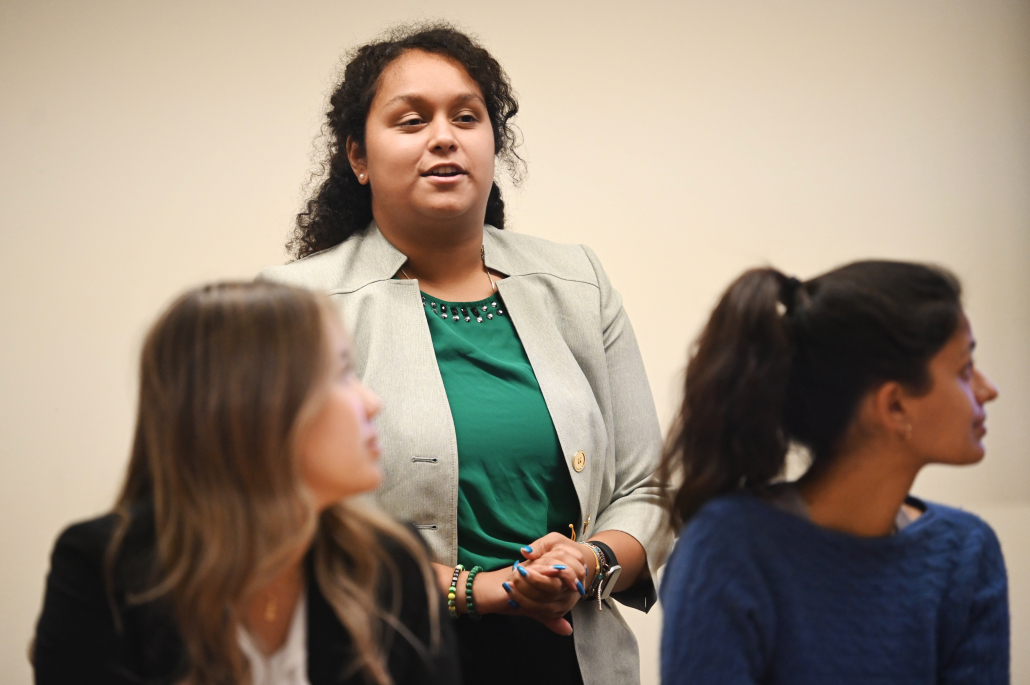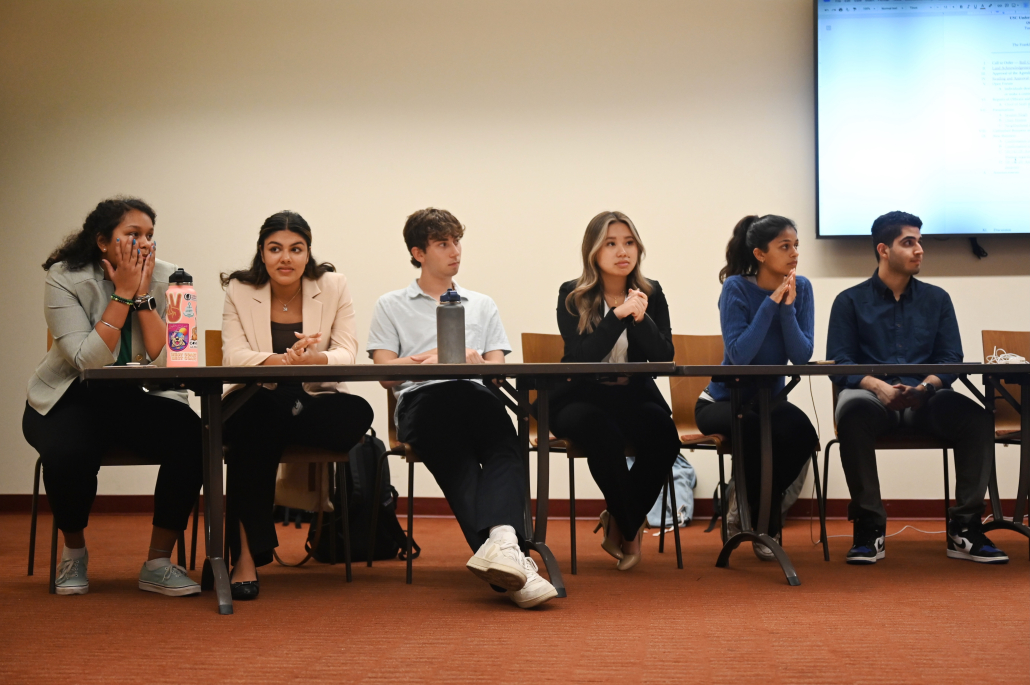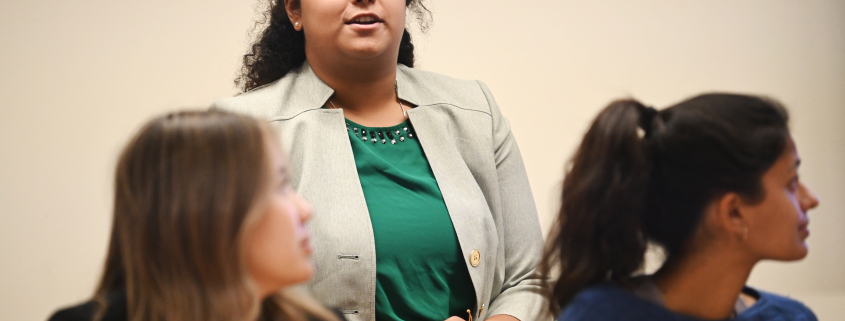USG looks into 24-hour dining options for students

Senator Navya Singh shared project updates on providing 24-hour dining options for students, including bringing back the all-night Starbucks or making kiosks available at Seeds Marketplace during Tuesday night’s Undergraduate Student Government senate meeting.
“I think the most clean-cut [idea] right now is the Starbucks option,” Singh said. “It is something that we could advocate for because it was a thing before COVID, and the University is really trying to go back to pre-COVID days.”
Singh shared her other projects, such as the creation of the “Sustainability x Speaker” series to be held in the spring, where USG will invite previous alumni or fourth-year students to discuss what sustainability means within their chosen career path. Singh also presented her goal to provide undergraduate students with a Metro pass, so they can travel more easily around Los Angeles.
“Students don’t really have an opportunity to really explore the city if they don’t have a car, so we’re looking to see if we can get a Metro pass for all undergraduate students to help with that,” Singh said.

Hunter Hinson, chair of the affordability and basic needs committee, presented the committee’s objectives for the year, which include expanding and streamlining resources available to first-generation and low-income students and building a coalition of stakeholders to advocate for affordability and basic needs issues.
Hinson also discussed the committee’s current projects, including the continuation and expansion of the dining dollars donation program to allow for an extended period for donation, providing textbook aid and club dues assistance, providing medical supplies in vending machines, hosting a clothing drive, reopening the Trojan Food Pantry and providing work-study alternatives for undocumented students.
“What I enjoy most about being chair is that it deals with the issues that I think are the most important for our students,” Hinson said. “Ensuring that students have food and housing is more important than anything else in their lives, as these are the most basic needs, and working with a group of people who are really passionate about the issue and have everyone involved is really good.”
Vincent Cisneros, a junior majoring in public policy, presented his nomination as a USC liaison for the North Area Neighborhood Development Council. The position had been vacant for a year prior to Cisneros’ nomination and his term will last two years. The council, chartered by the L.A. City Council, meets on the first Thursday of every month to advocate for stakeholders within three designated areas around the city; USC resides in Area 3.
“I’m on the External Affairs Committee … and our main focus this semester is mending the relationship that has been historically turbulent between USC and the surrounding area,” Cisneros said. “Given the fact that position is reserved for [a USC student], it’s a little embarrassing that we’re not filling it because we do have a commitment to this area.”
To join the council, Cisneros submitted a cover letter and was tasked with collecting 50 signatures — the senators all signed in support of Cisneros’s nomination.
The senate unanimously confirmed Alex Rohleder, a sophomore majoring in biomedical engineering, as the student-at-large on the Programming Fee Control Board. The board advises the USG president on whether or not USG should increase, decrease or maintain the programming fee.
“I’ve got a business finance minor, and I’ve got a little bit of experience working as a manager in an HR company getting to see the financial side of [the company],” Rohleder said. “I just wanted more experience, [and to] have something to add to the resume and a chance to be involved in the student government.”
The senate also confirmed Natalie Battiest, a junior majoring in health promotion and disease prevention, and Daniel Williams, a sophomore majoring in political science, as co-executive directors of the Native American Student Assembly.

